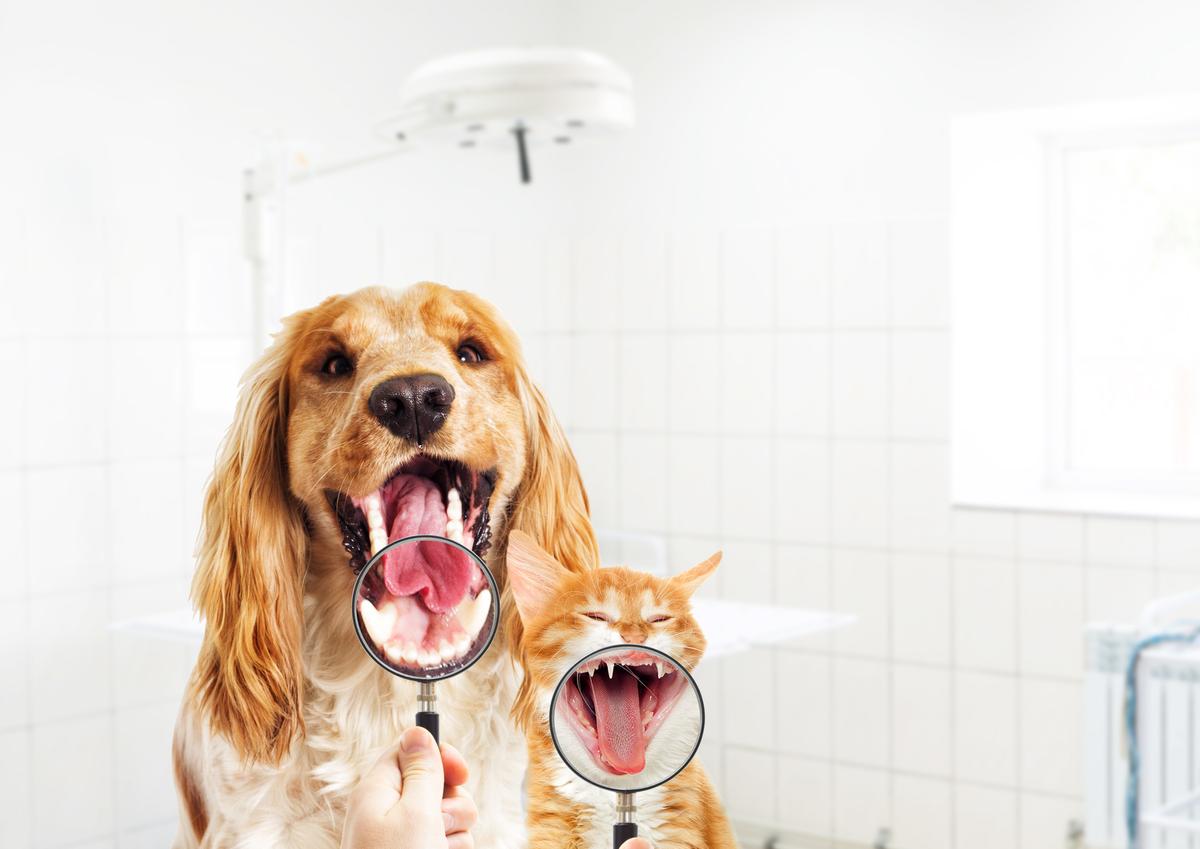Caring for our beloved pets involves a multitude of responsibilities, from providing proper nutrition and exercise to regular veterinary check-ups. However, one crucial aspect of pet care that often goes overlooked is dental health. Just like humans, pets can suffer from various dental issues that can significantly affect their quality of life. In this comprehensive guide, pet barn will delve into the importance of dental health for pets, explore common dental problems they can face, and provide a more in-depth look at tips for maintaining optimal oral hygiene in your furry companions.
The Vitality of Dental Health for Pets
Maintaining proper dental care for pets is of paramount importance for several compelling reasons:
1. Pain Prevention:
Dental problems can cause severe pain for animals, affecting their ability to eat, drink, and play. By ensuring good dental health, you can prevent unnecessary suffering for your beloved pet.
2. Overall, Health:
Dental issues can lead to systemic health problems. Bacteria from infected teeth can enter the bloodstream and impact vital organs like the heart, liver, and kidneys. Thus, maintaining your pet’s oral health can contribute to their overall well-being.
3. Longevity:
Pets with healthy teeth tend to live longer, healthier lives. Dental problems can result in reduced appetite, weight loss, and other issues that can negatively affect their lifespan.
Common Dental Issues in Pets
To better understand the significance of dental care for pets, let’s delve deeper into some of the most common dental issues they can encounter:
1. Gingivitis and Periodontal Disease:
Gingivitis, the inflammation of the gums, is a prevalent issue in pets. If left untreated, it can progress into periodontal disease, a more severe condition that affects the tissues and bones supporting the teeth. Common signs of gingivitis and periodontal disease include red, swollen gums, persistent bad breath, and loose teeth.
2. Dental Tartar and Plaque:
Just as in humans, plaque and tartar can accumulate on your pet’s teeth over time. If not addressed, this buildup can lead to cavities and gum disease. Removing tartar can be challenging and may require professional cleaning by a veterinarian.
3. Broken or Fractured Teeth:
Pets can inadvertently break or fracture their teeth through accidents or chewing on hard objects. Broken teeth can cause pain and discomfort, sometimes necessitating extraction or repair.
4. Tooth Decay:
While less common in pets compared to humans, tooth decay can still occur, particularly in animals with a high-sugar diet. Dental decay can lead to tooth pain and infection.
5. Oral Tumors:
Oral tumors can develop in pets, and they may not always be immediately obvious. Regular dental check-ups can help detect these issues early, increasing the chances of successful treatment.
Tips for Maintaining Your Pet’s Oral Health
Now that we’ve delved into the common dental problems faced by pets, let’s explore a more comprehensive set of guidelines for preserving your furry friend’s teeth and gums:
1. Regular Dental Check-ups
Schedule regular dental check-ups with your veterinarian. These professionals are trained to assess your pet’s oral health and can recommend appropriate treatments or cleanings.
2. Brushing Your Pet’s Teeth
Yes, you can brush your pet’s teeth! Use a toothbrush and toothpaste designed specifically for pets. Start slowly and gradually increase the time and frequency of brushing to allow your pet to become accustomed to this routine.
3. Dental Chews and Toys
Provide dental chews and toys specifically designed to help remove plaque and tartar from your pet’s teeth. These products can be both enjoyable and effective in maintaining dental health.
4. Dietary Choices
Consider your pet’s diet. High-quality pet foods and treats can contribute to better dental health. Some pet food brands offer special dental diets designed to help prevent plaque and tartar buildup.
5. Avoid Hard Objects
Discourage your pet from chewing on hard objects like rocks or bones that could potentially damage their teeth. Instead, offer safe and appropriate chew toys.
6. Professional Dental Cleanings
When necessary, opt for professional dental cleanings at your veterinarian’s office. These cleanings are typically performed under anesthesia to ensure a thorough job, including the removal of tartar and plaque buildup.
7. Monitor for Signs of Dental Problems
Keep a vigilant eye out for signs of dental issues, such as bad breath, excessive drooling, pawing at the mouth, or changes in eating habits. If you notice any of these signs, consult your veterinarian promptly.
8. Be Patient and Gentle
If your pet is initially uncooperative with dental care routines, be patient and gentle. It may take time for them to become comfortable with tooth brushing and other dental care activities.
9. Dental Wipes and Oral Rinses
In addition to brushing, consider using dental wipes or oral rinses designed for pets. These can help control plaque and maintain fresh breath.
Maintaining your pet’s dental health is an indispensable aspect of responsible pet ownership. By addressing common dental issues and diligently following these comprehensive tips for oral care, you can ensure that your furry friend enjoys a life full of smiles, tail wags, and free from dental pain or discomfort. Always remember that your veterinarian is your primary resource for guidance on your pet’s specific dental needs. Don’t hesitate to seek their advice and support to keep your pet’s teeth and gums in top-notch condition. Your pet will thank you with a lifetime of joy and companionship.

